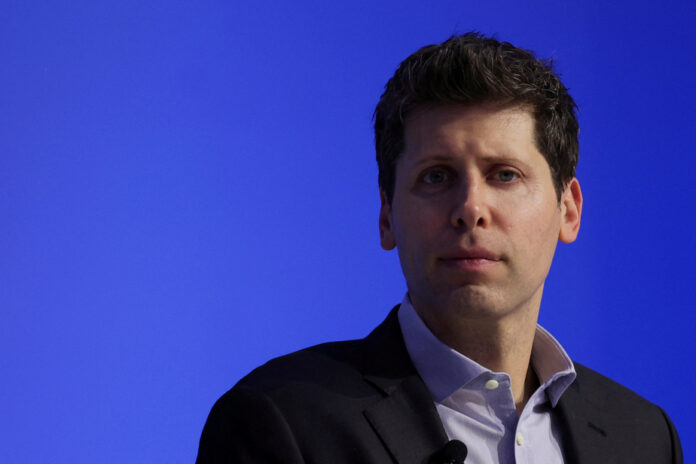(San Francisco) Less than a week after being let go from OpenAI, Silicon Valley star Sam Altman is back at the head of the start-up behind the chatbot ChatGPT, whose governance will be profoundly renewed.
“We have reached an agreement in principle for Sam to return to OpenAI as CEO” with changes to the board of directors, the first members of which will be Bret Taylor (chairman), Larry Summers and Adam D’Angelo, explained the company in a message posted just after 10 p.m. Tuesday evening in California, or 7 a.m. Wednesday in Paris (1 a.m. Eastern).
“We’re working on the details. Thank you for your patience during this time,” added the young flagship artificial intelligence (AI) company in this message.
Sam Altman, whom Microsoft announced on Monday to hire, three days after his dismissal, immediately claimed to have the support of Satya Nadella, the boss of the technology giant, to return to the head of OpenAI.
“With the new board and Satya’s support, I look forward to returning to OpenAI and building a strong partnership” with Microsoft, he wrote on X (formerly Twitter).
His colleague Greg Brockman, former chairman of the board of directors who followed him to Microsoft, also announced his return to X.
OpenAI was founded in 2015 as a non-profit association. Since then, it has partnered with Microsoft, which invested billions of dollars and gave it access to its IT infrastructure to enable it to develop ever more efficient AI models.
The IT giant is also a minority shareholder – at an undisclosed level – in the private arm of OpenAI, controlled by the original foundation.
Questioned by Bloomberg on Tuesday, Satya Nadella did not rule out a return of Sam Altman to OpenAI, saying that it would then require “changes in governance, to avoid sudden changes where we would not be in the loop”.
The surprise ousting of Sam Altman on Friday caused an earthquake in Silicon Valley, reminding some of the 1985 dismissal of Steve Jobs by Apple, of which he took over years later.
According to a letter published by several American media, nearly 700 of OpenAI’s 770 employees, including the first interim manager, threatened to resign over the weekend if Sam Altman, 38, did not return.
On Monday, former Twitch boss Emmett Shear, in turn named interim number 1, announced that he was launching an independent audit into the latest events.
The new board of directors, although it remains as small as the previous one, differs drastically in the experience of its first members, all of whom are men.
Bret Taylor, 43, co-creator of Google Maps, is a former executive of software specialist Salesforce. He worked as technical director at Facebook (Meta), and was also a member of the board of directors of Twitter, which became X until the takeover of the social network by Elon Musk.
Harvard professor Larry Summers, 68, is the former U.S. Secretary of the Treasury and was chief economist of the World Bank.
A well-known figure in Silicon Valley, Adam d’Angelo, 39, is one of the survivors of the previous council. He founded the question-and-answer site Quora.
On the other hand, Ilya Sutskever, head of OpenAI, the entrepreneur Tasha McCauley and Helen Toner, director of strategy of a research institute in new technologies, are not cited and could have been excluded.
Known to be very worried about the advances in AI, which he fears will end up pursuing goals in contradiction with those of humanity, Ilya Sutskever said on Monday that he “sincerely regrets (his) participation in the decision of the Council of administration” to oust Sam Altman.
The release of the first version of ChatGPT on November 30, 2022 kicked off a race for so-called generative AI, that is, capable of creating content (text, images, sounds). on request in everyday language.
Generative AI is considered capable of transforming entire sectors of the economy. It arouses enthusiasm, but also strong concerns about its possible danger for democracy (massive disinformation) or employment (replaced professions), in particular.















